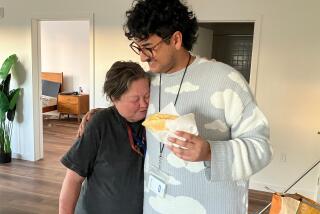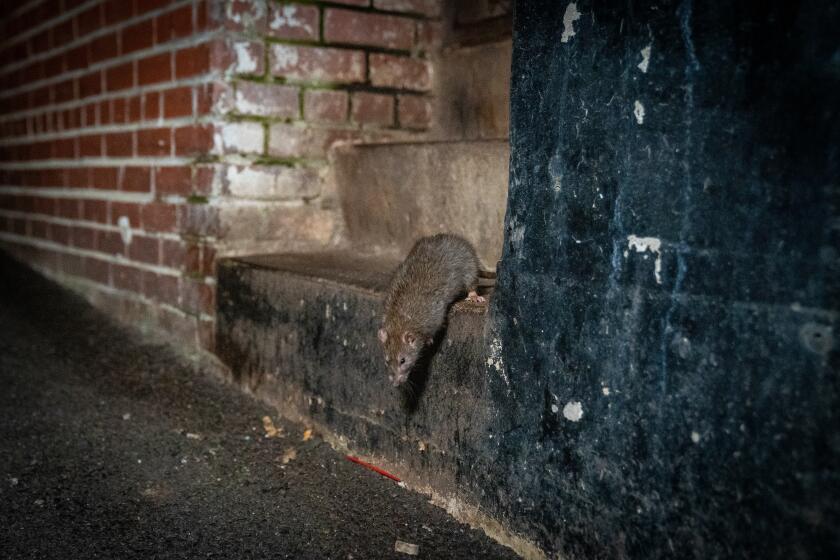Making A Difference in Your Community : Brain Injured: Many Needs, Few Resources
- Share via
The painful truth for Anne McLean is that modern medicine’s ability to save lives has advanced beyond the generosity of society to provide for victims of serious brain injuries.
“We can’t keep going,” said McLean, who started Project Headway with a group of other parents of brain-injured adults 10 years ago. “We need donations desperately.”
Project Headway runs three group homes in Northridge and one in Reseda, caring for adults who have suffered brain injuries through car accidents, gunshot wounds, strokes, aneurysms and boating accidents.
The Irish-born McLean, who formerly lived in Australia, came to Los Angeles after her son Martin was hit by a drunk driver in 1980. “My son was a businessman,” McLean said. “He came up the 405 one day and he never came back.”
She found that although doctors were able to save her son’s life, there was no financial help from either government agencies or social services to care for him. Her son had $1 million in health-insurance coverage before the accident, and it was spent within a year and a half, she said.
“I don’t think he knows us,” McLean said. “There are times when he will be loving, and sometimes he will be very frustrated.”
There still is no help for families, aside from Project Headway, and they don’t have any more room, McLean said.
“We are doing a good job,” said Shirley Weisberg, who met McLean in a parents’ support group at Northridge Hospital Medical Center. Her son was injured in a boating accident. “But we’ve paid a hell of a price.”
The costs are financial as much as emotional.
“Money’s so tight, there is always a possibility of foreclosure,” Weisberg said. “Making the mortgage every month is one of our most difficult tasks.”
The agency’s 16-year-old van needs brakes, so the group is transporting patients in a 30-seat bus that was donated for trips. The washing machine, needed for countless loads of adult diapers, has broken down. And the agency can’t afford to replace the needed part for the machine, so a repairman is trying to rebuild it for them.
“There’s a lot of laws on the books that work against us, instead of for us,” Weisberg said. For example, the agency’s license is only as an adult group home instead of as a 24-hour constant care facility. Unlike homes for adults born with mental impairment, there is no category for assistance to those who suffered serious brain injuries after they reach age 18.
For the same reason, Social Security checks for residents cover only room and board, but give no help for the continual care that Project Headway must provide. Residents are often helpless and cannot feed and bathe themselves.
Rooms at Project Headway group homes are decorated with pictures, toys and personal effects. “We try to give them a home as close to what they had,” Weisberg said.
“I’m so impressed with what they have done for them,” said Sybil Rosenman of Las Vegas, whose 39-year-old daughter, Marla, lives in one of the homes. Her daughter was on her way to a master’s degree in psychology when a rare brain disease struck.
“My daughter as a young girl was a phenomenal artist,” Rosenman said, holding up a detailed sculpture of a shoe in one hand, made when Marla was young. In the other hand, Rosenman holds up a crude picture of a cat, made recently. “They had such promise,” Rosenman said of the residents of Project Headway. “And by a twist of fate, it’s taken away.”
A cruel question for McLean is whether she is grateful that modern technology saved her son.
“I love my son very dearly,” McLean said, her eyes turning teary. “I think God would have been good to him and us if he had taken him.”
To volunteer at Project Headway or to make a donation, call (818) 993-4464.
Getting Involved is a weekly listing of volunteering opportunities. Please address prospective listings to Getting Involved, Los Angeles Times, 20000 Prairie St., Chatsworth 91311. Or fax them to (818) 772-3338.






